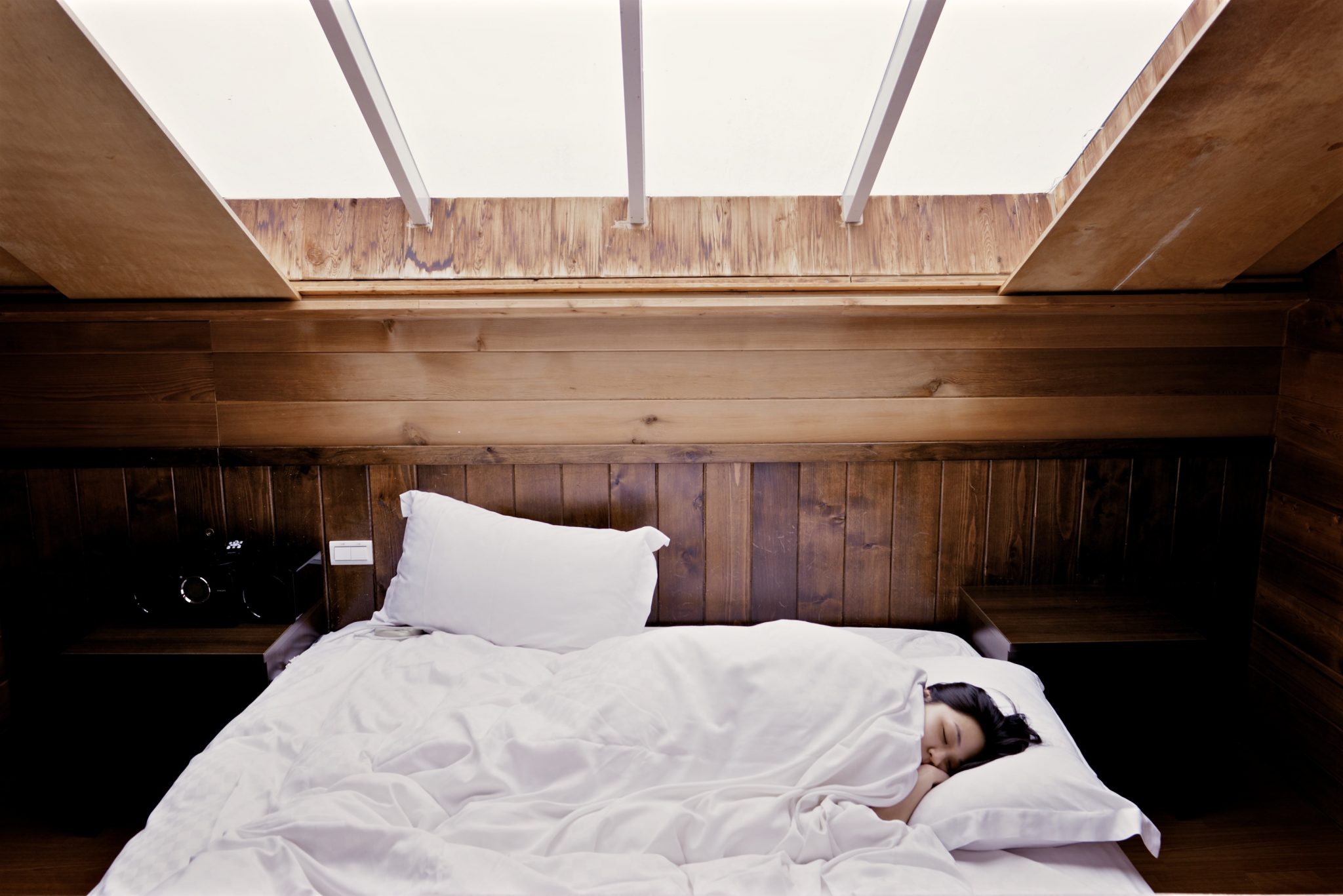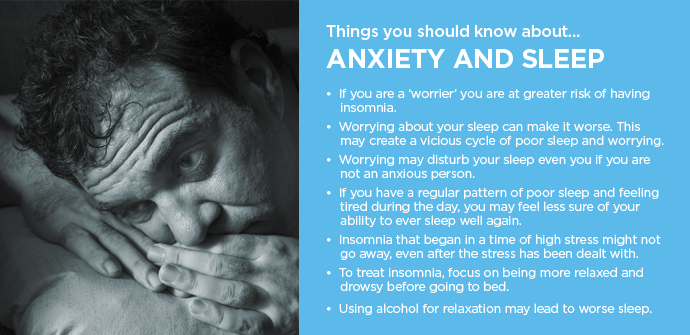
How anxiety affects sleep
As the Sleep Health Foundation say – “Time in bed is time well spent”. The average adult needs about 8 hours of sleep a night, but the truth is that many people are getting far less than the recommended amount. Poor sleep habits are sometimes seen as something to laugh about, but the lack of quality sleep can have some serious effects on our health. Let’s look at 5 tips you can do to get a better nights sleep.
The effect of anxiety on sleep
Sleep disruption is a common feature of mental health problems, and anxiety is no exception. You don’t have to have a diagnosed anxiety disorder to feel the impact the stress and worry can have on your sleep patterns.
Source: Sleep Health Foundation
1.Set up a sleep pattern.
Your body operates on a complex biological timer, and you can help influence your internal clock by setting up a routine to tell your body when to sleep. To help train your body, try to go to bed at a similar time each day. Your pre-bed routine can also play an important part in winding down – you might take a warm shower, read a book, or do other calming activities to prepare yourself before bed.
2. No screen time before bed.
Taking mobile phones to bed for a last look at social media has become common, but this practice is particularly harmful to sleep quality. The light that electronic devices emit tell your brain that it is time to be awake, and make it harder for you to wind down. Turn off the electronics well before it is time for bed.
3. Avoid bad habits.
Caffeine is a major culprit in keeping people awake. Coffee, chocolate, tea and cola drinks have sleep-disturbing amounts of caffeine, so start limiting them hours before bed. Alcohol might seem to help with relaxation but it seriously affects the quality of sleep, so avoid that as well. If you need a daytime nap, try to have it before the afternoon so it doesn’t affect your sleep.
4. Don’t watch the clock.
If you are watching the clock tick over while you struggle to tune out, get rid of the clock completely. Create the mindset that rest is a good use of your time, even if you are not asleep. People sleep more than they think they do, and anxiety will definitely prevent you from relaxing. Don’t stay in bed if you are wide awake – try repeating your calming bedtime routine, and then use your time to rest and relax in bed.
5. Get professional help.
Sleeping tablets are rarely a long-term solution except in exceptional circumstances, but there are a range of other techniques and treatments that can be used to help people who struggle with sleep. If you experience recurring problems in this area, don’t suffer in silence – talk to your GP.
The Sleep Health Foundation specifically recommends that you see your doctor if you experience “persistent problems with mood, restlessness in bed, severe snoring or wakening unrefreshed despite what should be adequate length sleep”. Your GP is available to help you with your sleep issues, and to refer you on to specialists where necessary. Don’t accept poor sleep as an inconvenient part of life – fight back for a good night’s rest.
With these 5 tips to get a better nights sleep, you could be on your way to getting that restful shut eye we all need!
Click here if you would like to see a GP to discuss sleep issues –>

